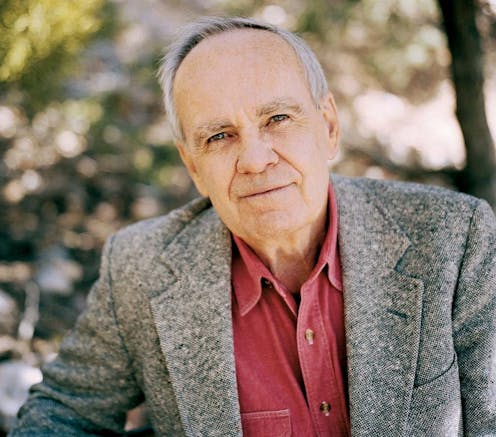Cormac McCarthy's fiction was a dark counter-narrative to American optimism
- Written by Paul Giles, Professor of English, Institute for Humanities and Social Sciences, ACU, Australian Catholic University

It is testimony to Cormac McCarthy’s reputation as a writer of dark and violent fictions that his publishers should explicitly have stated in their press release on Tuesday that his death was due to “natural causes”.
Normally the passing of a famous author[1] at the age of 89 might be regarded as part of the natural cycle of things, but McCarthy’s frequent depictions of gruesome murder plots, and the judicious discussion of suicide in his most recent novel Stella Maris[2], perhaps induced Penguin Random House to emphasise how the author made his exit in a more conventional manner, garlanded by age and honours.
Given his own troubled personal history with alcohol, divorces and economic hardship during the early part of his career, such a consummation was never an entirely safe bet. Nevertheless, McCarthy eventually saw it through and he ended up a major American fiction writer, albeit a complex and often controversial figure whose works were typically unsettling.
‘Overpowering use of language’
Born Charles McCarthy into a comfortable Catholic family in Rhode Island in 1933, McCarthy subsequently took his pen-name “Cormac” as a memento of his Irish ancestry. He was brought up in Tennessee, with his early novels The Orchard Keeper (1965), Outer Dark (1968) and Suttree (1979) immersed in the cracker-barrel humour of the American Deep South.

















